Health
-

6 keys to a long, healthy life (ice cream included)
Also, why reading Ben Franklin beats climbing Mount Everest
-

Six cancers rising faster in younger adults than older ones
Large new global study fuels growing concern over trend of increases in several types

-

What’s next for GLP-1s?
Scientists eye new treatment targets for popular weight-loss drugs, from heart failure to addiction
-

Pricey blockbuster GLP-1s are costing users — and most of the rest of us, too
Health insurers are passing along cost for coverage in form of higher rates across the board, policy researcher says
-

Drinking 2-3 cups of coffee a day tied to lower dementia risk
Caffeinated tea also found to slow cognitive decline in study

-

New AI tool predicts brain age, dementia risk, cancer survival
Unlike other AI models, BrainIAC needs limited data to ID key neurological health indicators

-
A home fit for a king
State wildlife biologists installed a peregrine falcon nesting platform high on Memorial Hall’s tower.

-
Promising stem cell therapy
Harvard Stem Cell Institute researchers at Massachusetts General Hospital have developed an “imageable” mouse model of brain-metastatic breast cancer and shown the potential of a stem-cell-based therapy to eliminate metastatic cells from the brain and prolong survival. The study, published online in the journal Brain, also describes a strategy for preventing the potential negative consequences of stem cell therapy.
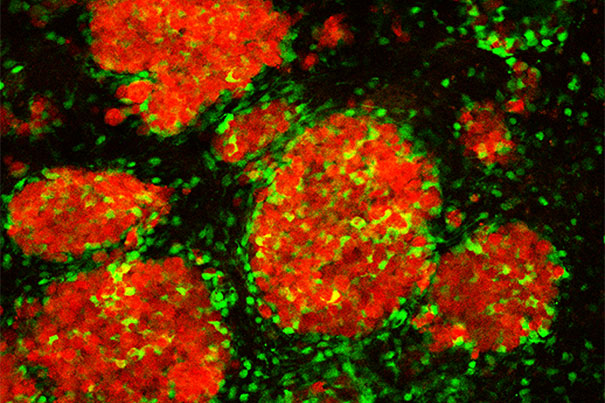
-
Why birds don’t crash
A new study shows that birds use two highly stereotyped postures to avoid obstacles in flight. The study could open the door to new ways to program drones and other unmanned aerial vehicles to avoid similar obstacles.

-
Health as an economic engine
Finance ministers from Africa, the Caribbean, Latin America, and Southeast Asia gathered at Harvard Art Museums on April 21 to discuss links between health care and economic performance.

-
E-cigarette battle heats up
In a talk titled “Can E-cigarette Regulation Protect the Public’s Health? Making Sense of the Science,” public health experts speaking at the Harvard T.H. Chan School of Public Health Thursday said they worry the battery-powered smokes may provide a dangerous gateway for teens and others to start smoking.
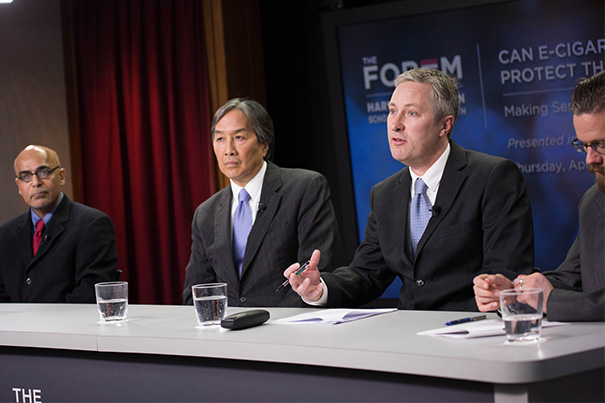
-
You are when you eat
A new study may help explain why glucose tolerance — the ability to regulate blood-sugar levels — is lower at dinner than at breakfast for healthy people and why shift workers are at increased risk of diabetes.

-
Gates Foundation CEO challenges students
Sue Desmond-Hellmann, CEO of the Bill & Melinda Gates Foundation, shared the “Big Bet,” an ambitious series of goals the Gateses issued in their annual letter. Desmond-Hellman challenged Harvard Chan students to help make the bet pay off during her talk as part of the Dean’s Distinguished Lecture series.
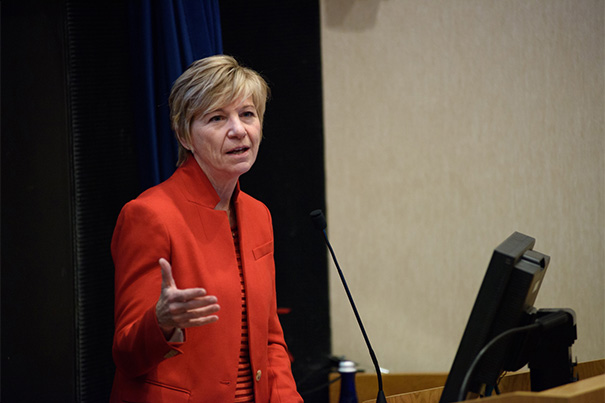
-
Hand-held disasters
Harvard’s Center for Health Communication last week arranged a media briefing at the Massachusetts State House on distracted driving, a problem that takes some 3,000 lives a year in the United States. The Gazette spoke to center director Jay Winsten about the problem.
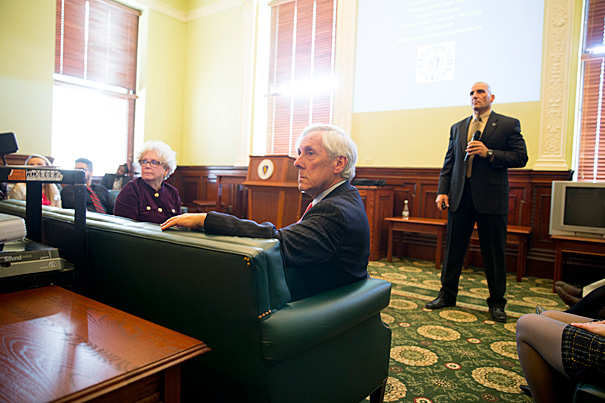
-
Wine watcher
Harvard biologist Elizabeth Wolkovich is studying wine grape phenology and changes that might be needed in a warming world.
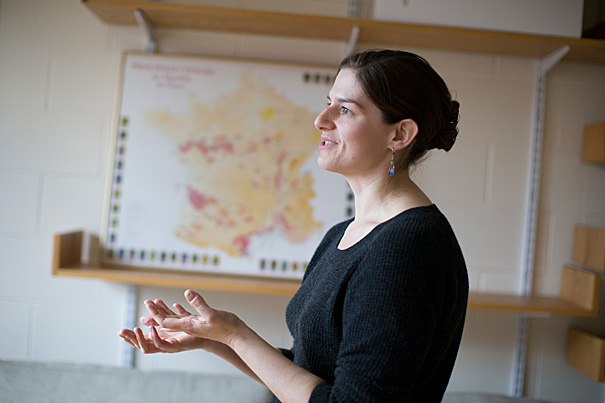
-
Pesticides result in lower sperm counts
Men who ate fruits and vegetables with higher levels of pesticide residues had lower sperm counts and lower percentages of normal sperm than those who ate produce with lower residue levels, according to a new study from Harvard T.H. Chan School of Public Health.

-
Mystery motor
Harvard researchers have solved the mystery of how some bacteria move across surfaces with the discovery of a rotary motor in the bacterium Flavobacterium johnsoniae.
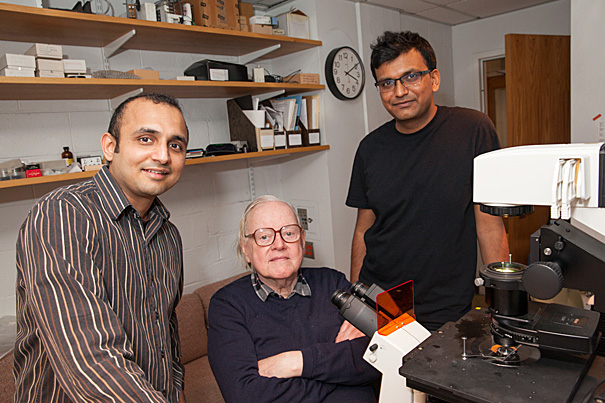
-
Healthy school lunches have to taste good, too
School collaborations with a professionally trained chef to improve the taste of healthy meals significantly increased students’ consumption of fruits and vegetables, according to a new study led by researchers from Harvard T.H. Chan School of Public Health.

-
Hip correction
A new study finds no connection between hip width and efficient locomotion, and suggests that scientists have long approached the problem in the wrong way.
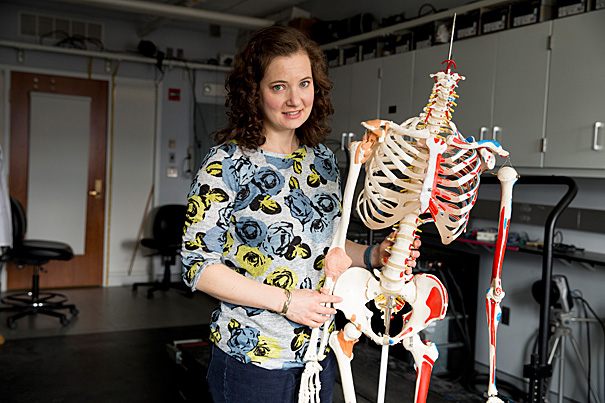
-
Behind the measles outbreak
Researchers have found that measles vaccine coverage among the exposed populations is far below that necessary to keep the virus in check. The study is the first to positively link measles vaccination rates and the ongoing outbreak.
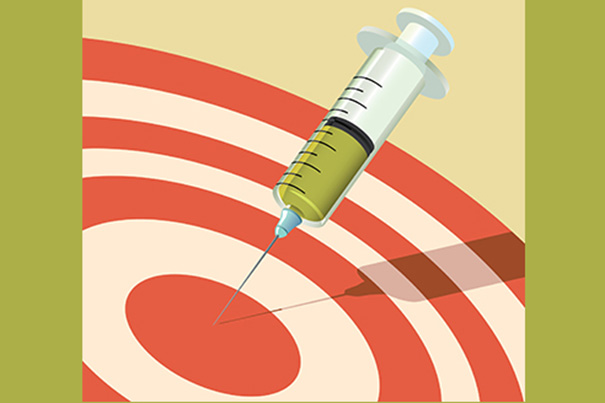
-
Smarter by the minute, sort of
New research from Harvard and MIT shows that different cognitive skills peak at different times in lifespan.
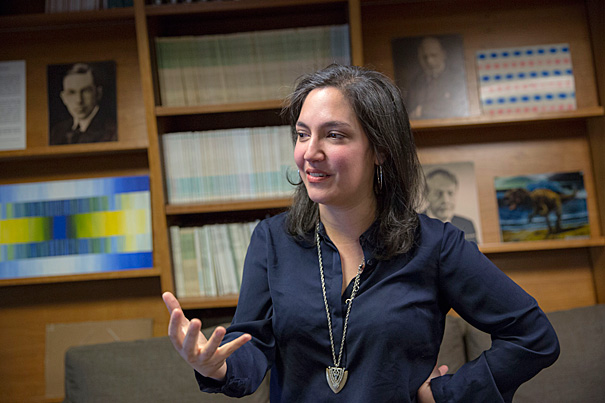
-
Brains or skin?
A protein that is necessary for the formation of the vertebrate brain has been identified by researchers at the Harvard Stem Cell Institute (HSCI) and Boston Children’s Hospital, in collaboration with scientists from Oxford and Rio de Janeiro.
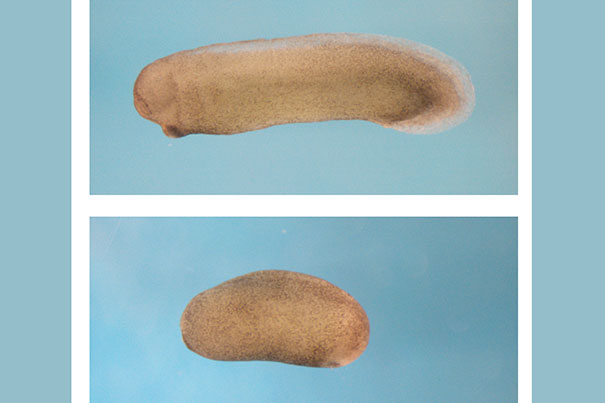
-
The teeth tell a tale
A new study shows that the teeth of early hominins grew unlike those of either modern humans or apes, suggesting that neither can serve as a useful proxy for estimating the age or developmental progression of juvenile fossils.
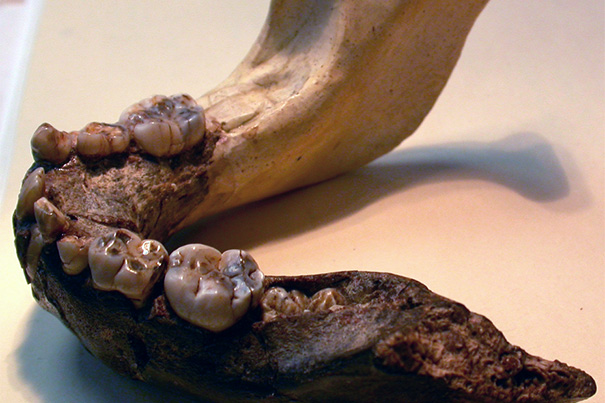
-
Case of the rotting mummies
Chilean preservationists have turned to a Harvard scientist with a record of solving mysteries around threatened cultural artifacts.
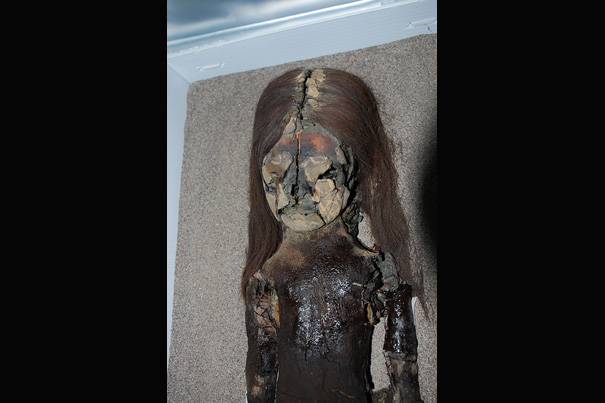
-
Ebola: A long way from over
The Ebola epidemic is waning, but experts at a Harvard Medical School conference said the fight against the disease should be carried on until the last patient is cured, until more is known about the virus, and until local health care systems are robust enough to withstand another outbreak.
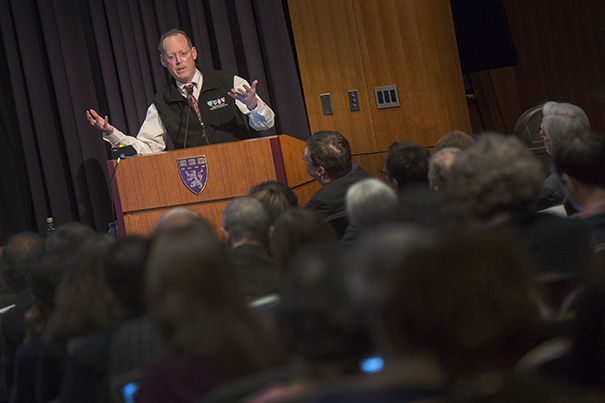
-
Putting health in context
Panelists at the Harvard T.H. Chan School of Public Health examined social disparities that make some people more likely to end up sick than others.
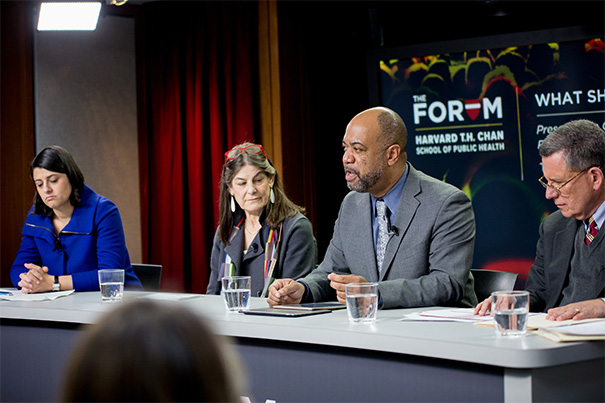
-
March mammal madness
An assistant professor of evolutionary biology, Katie Hinde is also the creator of Mammal March Madness, a tournament that emulates the college basketball playoffs and pits species against each other in simulated combat.

-
Possible progress against Parkinson’s
Harvard Stem Cell Institute researchers at McLean Hospital have taken what they describe as an important step toward using the implantation of stem cell-generated neurons as a treatment for Parkinson’s disease.
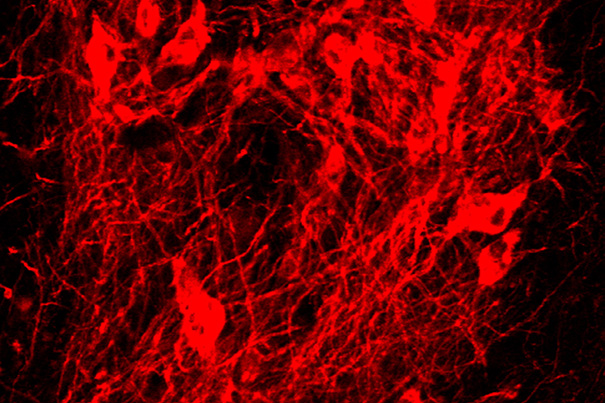
-
A new stem cell advance
Collaborating with scientists elsewhere, Harvard Stem Cell Institute researchers have devised two methods for using stem cells to generate the type of neurons that help regulate behavioral and basic physiological functions in the human body, such as obesity and hypertension, sleep, mood, and some social disorders.
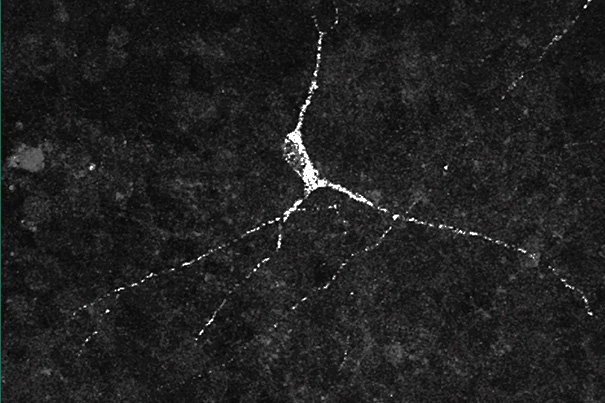
-
Tuning in on brain waves
Researchers have identified a group of neurons in the brain. The role of this cell type, in a region of the brain important for “waking up the cortex,” had not been previously identified. It may suggest potential therapies for disorders like schizophrenia.
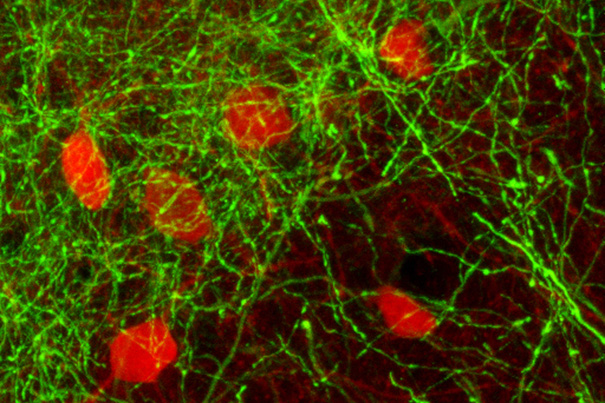
-
An opening for measles
In the wake of the recent measles outbreak, a panel of experts convened at Harvard Law School to discuss the ethical, legal, and public health issues around vaccination.
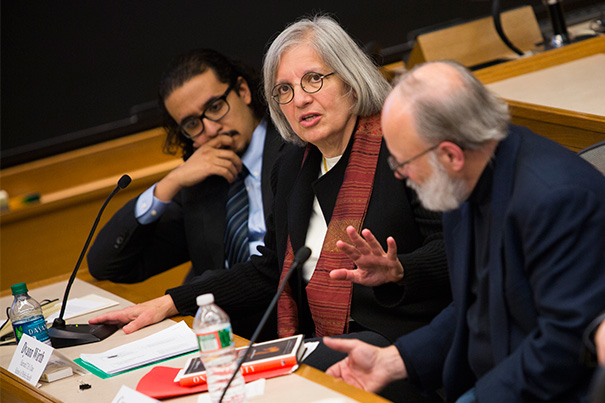
-
Perception of food consumption overrides reality
Targeting mechanisms in the central nervous system might yield the beneficial effects of low-calorie diets on healthy aging without the need to alter food intake, suggests new research from Harvard T.H. Chan School of Public Health.
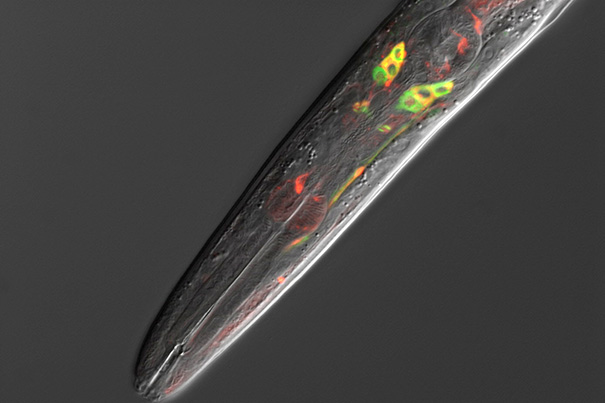
-
A new understanding of Alzheimer’s
Using the principle of natural selection, researchers have outlined a new model of the disease suggesting that mitochondria — power plants for cells — might be at its center.
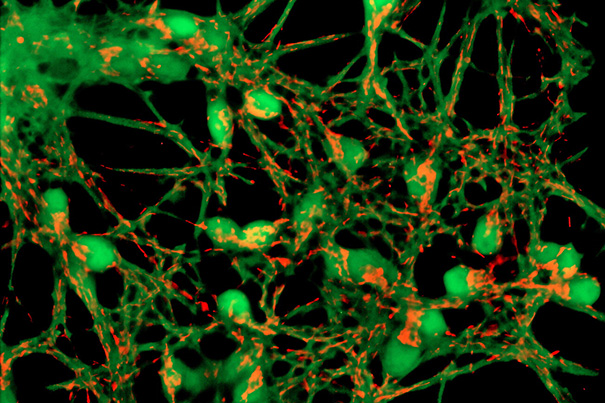
-
Malaria: Down but not out
Anti-malaria efforts have made progress in recent years, but authorities have to keep up the pressure if they are to defeat an illness that is not only ancient, but resilient, speakers at Harvard said.
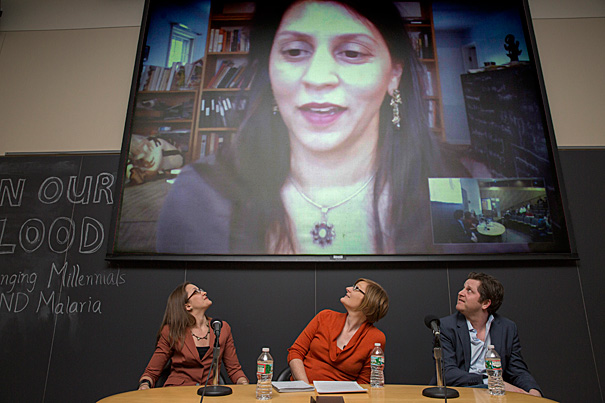
-
The entire egg
Harvard Professor Walter Willett underlined the distinction between dietary and blood cholesterol, and stressed whole foods rather than any single nutrient as key to a healthy diet.

-
Shelter for the psyche
Harvard psychiatrist Jacqueline Olds offers some tips for coping with the snow and the dark days of winter.


